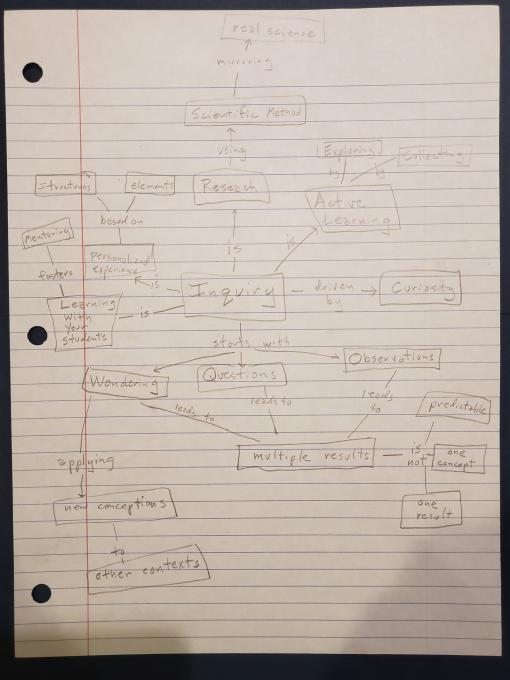The Cornell Lab Bird Academy › Discussion Groups › Inspiring Investigations through Citizen Science › Intro to Inquiry
-
Inquiry learning in the classroom mirrors the scientific process by providing students with opportunities to ask authentic questions about their world and test them through experimentation. The teacher is there to support, guide and help students focus their work.

-
My definition of Inquiry is to use the given qualities every child posses to learn about the world around them in a provided direction to be further explored. Toddlers are inquisitive to learn about the world around them in order to determine what is pleasurable, harmful, hot, cold, tastes good or not and etc. The inquisitiveness of each student needs to be reinvigorated to explore the world around them not just in school but outside the school building in the society and world around them. Yes, the scientific method is a methodology for the students to use to explore but the student first needs to be able to ask the question that needs to be answered throughout life.

-
Inquiry requires one to think, question, and utilize prior knowledge. It is the hidden treasure to learning that most of us forget to utilize because we are often schooled and coached on what to think about through out the day. It is curiosity. It is communicating and thinking where there is no stupid question. It brings out the best it all learners and learning styles despite the age or gender.

-
To me, inquiry is the process of exploring and questioning the world around you. Students, adults, families, elders, anyone who takes notice about the natural world around them and thinks about why things occur the way they do, how they can be changed or altered, how they can solve a problem, and using their senses to engage in the world around them are all part of the inquiry process.

-
Inquiry describes a way of learning that focuses on the development of critical thinking skills in students. It relies on the innate human ability to ask questions and desire to learn. In inquiry-based learning, the teacher takes on a new role as a facilitator and guide rather than a person to share and list facts extensively for students to memorize. While typical learning and teaching strategies focus on the transfer and memorization of information, inquiry learning instead focuses on the ability of students to gather and synthesize information on their own. As stated in the reading, inquiry learning gives students a chance to encounter their own information whereas typical strategies rely on students to be able to recall and recite "someone else's information." With that said, inquiry learning still gives students of any age and level the opportunity to fully grasp course concepts with hands on and personalized instruction.
-
Inquiry learning is, in general, initially innate for humans and some other species. Objects capture our attention and curiosity, we explore those objects and draw conclusions about them. As we mature that curiosity tends to lead our interactions with the world, sometimes with positive outcomes others with not so enjoyable endings. Ultimately, they help us develop our own paradigm for understanding the world. In a classroom or work setting, the inquiry method is experiential, first hand, personal, and concept based. It mimics much of the scientific method in that the learner asks a question, thinks about that question, predicts the answer based on their research and thought process, tests their thinking and draws conclusions. Rather than being given conclusions the learner is provided with experiences, guidance, and resources to develop their own thinking. Ultimately however, thinking must be challenged, defended, and when appropriate modified.
-
Inquiry to me is the various ways scientists approach a question. The questions must be opened end and lead to experiments. As a teacher, inquiry learning is a way to spark curiosity for my students and create interest in a topic.

-
I like the way that you organized your thinking.
-
-
 One of the simple ways I used INQUIRY, was my introduction the Red Winged Blackbird. Before the 'LAB,' courses, I never really knew about them. Then on one of my first nature walks, I saw 2. Then I thought, it must be a rare bird. Then I read that they are one of the, " most abundant birds in North America. " Then I went to a place where I can see dozens of them, every time I go there. Now I know, they are an abundant bird, but they love nature settings, only. So they are not like a 'backyard bird.' Nor a rare, California Condor, in there commonality. They are and abundant bird, but are usually in a natural environment. Not in a backyard, nor a parking lot ? Now I can photo them, and am comfortable with them, and now, through inquiry, I understand. At least in my zip code ?
One of the simple ways I used INQUIRY, was my introduction the Red Winged Blackbird. Before the 'LAB,' courses, I never really knew about them. Then on one of my first nature walks, I saw 2. Then I thought, it must be a rare bird. Then I read that they are one of the, " most abundant birds in North America. " Then I went to a place where I can see dozens of them, every time I go there. Now I know, they are an abundant bird, but they love nature settings, only. So they are not like a 'backyard bird.' Nor a rare, California Condor, in there commonality. They are and abundant bird, but are usually in a natural environment. Not in a backyard, nor a parking lot ? Now I can photo them, and am comfortable with them, and now, through inquiry, I understand. At least in my zip code ? -
The reading definitely expanded my view of inquiry, as you can see in the concept map. When I brainstormed what inquiry was, I thought of it as wondering, investigating something one is curious about, and looking very deeply into a question. I added to my definition that inquiry is open-ended and individualized. It is student-centered, and the teacher's role is to ask many questions without directing the investigation in attempt to get specific results. Inquiry learning allows and requires students to take risks and to closely observe the outcome. Unlike an in-class activity or an assigned lab with an expected or desired outcome, inquiry based learning prompts students to predict their own outcomes and design their own plans. Inquiry is problem solving, allows for multiple results, and requires many creative and critical thinking skills. Inquiry-based learning can be chaotic, which may turn some teachers away from it. Inquiry learning is not memorization, teacher-centered instruction, or structured activities.

-
I like your non-examples. As a teacher, I struggle with inquiry learning because of the chaotic feeling. I often will do smaller inquiry units and then more structured units with my middle school students.
-
-
To me inquiry is sparking a student's natural interest in the world. Students are already curious, inquiry is where we guide them into channeling that curiosity in a more systematic way to get results, or findings. Inquiry is having an idea or a hypothesis and doing observations, experiments, and analysis to figure out how or why.

-
I appreciate that you recognize students' natural curiosity and recognize inquiry as a way to guide that. We have just finished a science fair unit with 6th grade, and I saw such deeper passion for their subject when students thought of their own ideas based on something they were passionate about, such as growing broccoli sprouts that one student loves to eat, or projects involving eggs from the chickens and ducks that they raise, than the students who looked up an experiment on the internet and just tried to replicate it. While I think some teachers talk about "instilling" that curiosity in more students, how can we uncover the natural curiosity and passion that are already there?
-
-
Inquiry is a natural process through which humans use curiosity to explore the natural or material world, though asking questions and making discoveries. Along the way, the enquirer is collecting and recording data, making inferences, applying new concepts, and consulting resources. I wasn't able to attach an image, but my map included curiosity, engagement, puzzling, solving, focus, scientific process, natural world, material world, and discovery.
-
I like how you used "humans" and not just "scientists" in your definition because we are all scientists!
-
-
The more I think about the entire inquiry process, the more I think the starting point is noticing, simply being aware. But noticing also stems from an innate curiosity. From noticing springs the inquiry---Why? What if...? What else? How? It is an active participation with our surroundings that brings awareness of causes and conditions and the interdependence of everything.

-
My definition of inquiry is: a process by which curiosity sparks questions, experimentation occurs, feedback/data is received, and results are observed.

-
Great definition! I was thinking along the same lines. Inquiry is basically the scientific process.
-
-
Inquiry is a thoughtful and creative process that uses a variety of tools and techniques to answer questions and/or solve problems.
-

-
I believe inquiry is the scientific process of learning through curiosity and wondering. By observing, asking questions, brainstorming, collecting data, researching, experimenting and processing all information we can then receive valuable feedback and draw conclusions from our investigation. Through exploring, we will uncover concepts as we investigate. "What do I know" and "How can I find out more" are questions we continue to ask to discover more as we become independent thinkers and lifelong learners. Intrinsically speaking, I also personally believe inquiry is sparked within us through a collaboration of our 5 major senses (sight, touch, hearing, smell and taste) being "unable" process or understand something which we have encountered or observed which therefore internally creates curiosity, and wonder within us along with a strong sense of discovery and exploration that motivates us to inquire and find out why our senses can't process or understand this. I believe that this internal process, discussed above, is what causes us to become interested in inquiring about something in the first place and that this is possibly what produces the initial natural "spark" of interest in us to find out why, and want to learn more, and to question and and to challenge. Inquiry is a process of discovering truth through science and involves taking chances, random analysis, data collection, research, analysis and drawing conclusions from these efforts. Concepts, theories, understanding , progress, and insight are the wonderful by-products and dividends produced from inquiry.
-
The following quote from the article resonated with me: "Inquiry is the science, art and spirit of imagination." Inquiry allows us, as human-beings and learners, to remain curious and to wonder about our interactions with the world around us. It provides a pathway for critical, logical, and creative thinking as we set about describing something that captured attention... about something we wish to investigate, to understand, to solve... Inquiry, practiced life-long, is an antidote for: boredom, stagnation, prejudice, despair, and feeling disconnected from life. This is my concept map to represent elements found in my thinking about Inquiry pre and post reading the assigned article.


-
Inquiry is the process of learning through questioning and exploration. It can begin with brainstorming that will reveal prior knowledge and create interest and engagement. Exploration can include experiments, research or other learning activities. Students will discuss and analyze to find meaning or reveal new questions. Concepts are uncovered as students investigate. As students analyze their investigations checks for understanding allows assessment of the concepts. The final step is processing for meaning to allow students to understand and take ownership of their learning.
-
Inquiriy is learning process that is self directed- a spark. It is about being engaged, and interested, and curious. Inquiry is asking questions, and then being okay with not having an answer right away. Inquiry is about just letting the questions hang in the air as students explore possible ways of learning more. Through patienence, obeservation, and reflection, students create new understandings through their experiences.

-

-
Inquiry is a systematic, organized approach to research and is typically project based. It is intentional and relevant to the person/people conducting the inquiry so it provides the participant(s) with ownership. The results of the inquiry are visible. All of these factors related to inquiry have the potential to create long-term learners.
-
-
Inquiry is a process of evaluation that allows a person to categorize knowledge, master a skill, solve a problem, and derive meaning when they encounter something that challenges their current knowledge or sparks their curiosity. Inquiry may be inspired by an observation, challenge or experience that inspires curiosity or raises internal questions. The nature of the question or curiosity then leads to investigation and/or further observation that continues in a feedback loop until a conclusion can be formed. The process is one that is repeated whenever a challenge to previous understanding, or a new experience or observation is encountered. Being an informal educator and biologist who primarily has taught outdoors, this teaching process is very familiar to me. I find it incredibly rewarding to see others' spirits light up with curiosity and wonder, and see them work through the process to better understand the world around them.

-
Inquiry is a process which empowers lifelong learners to make connections, take risks and solve problems. It is a discovery process where one takes ownership over learning by making observations, asking questions, and seeking answers. They draw from background knowledge, prior experience, and curiosity to participate in a more flexible and subtle scientific process that alternatively is more demanding. By using this process of collecting data, drawing upon resources, and clarifying misconceptions, one is able to communicate their findings.

-
My concept of scientific inquiry starts with wonder which ignites curiosity about the world around you, which leads to questions: what do I know about this, how can I find more information, is there someone I can talk to? This often leads to the, "Yes, but" or "I think" and a theory evolves. Then comes active observation and finding a thread to investigate - to compare and contrast which leads to an "in-depth" question and further exploration and evidence gathering. Analyzing what you gathered and applying it to the world around you - full circle.

-
Your description of the process is just how I interpret inquiry, too.
-
Yes! I've come to see inquiry this way as well. How can you have a question if you don't have a curiosity? But also, how can you have a curiosity if you aren't observing....thus...my understanding of inquiry has brought observation at the center of the process---which taps into curiosity---but then curiosity also opens up awareness....never a straightforward situation.
-
-
Inquiry is a desire to find answers to a specific question or topic through research, vis
![IMG_20200714_180629626[1]](data:image/gif;base64,R0lGODlhAQABAAAAACH5BAEKAAEALAAAAAABAAEAAAICTAEAOw==) ual tools, discovery, community interviews and observations.
ual tools, discovery, community interviews and observations. -
Inquiry allows students to ask a question then find the answer themselves, not just be given a fact to memorize as the correct response to the question. The memorized fact is soon forgotten, but the lived experience of solving the problem on their own, or with a group, becomes personal knowledge. I love this kind of teaching!

Read More:
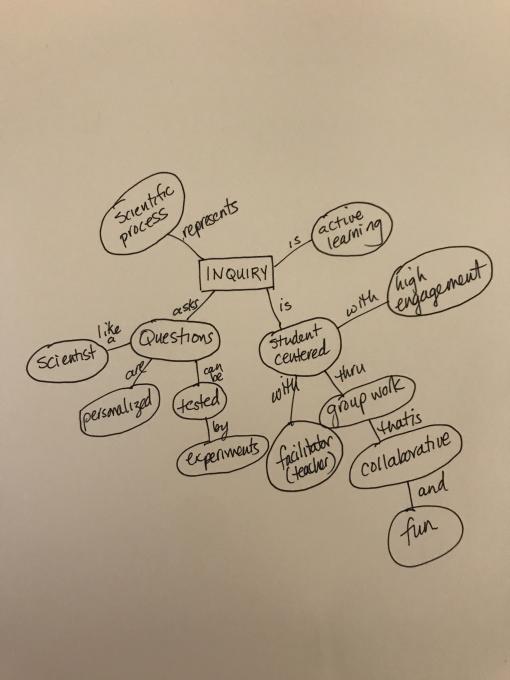
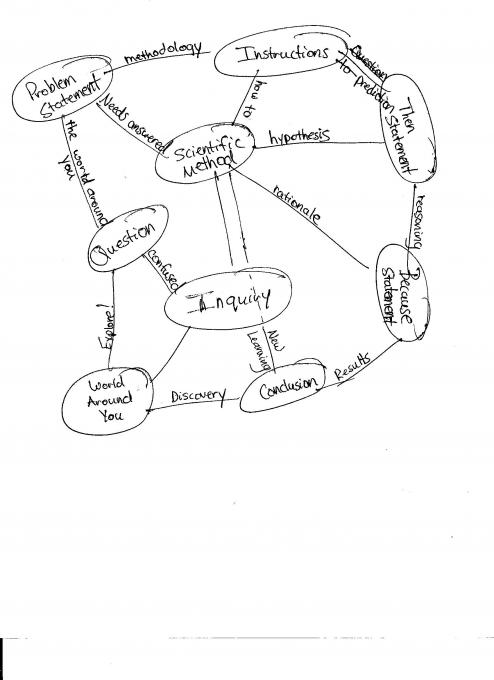
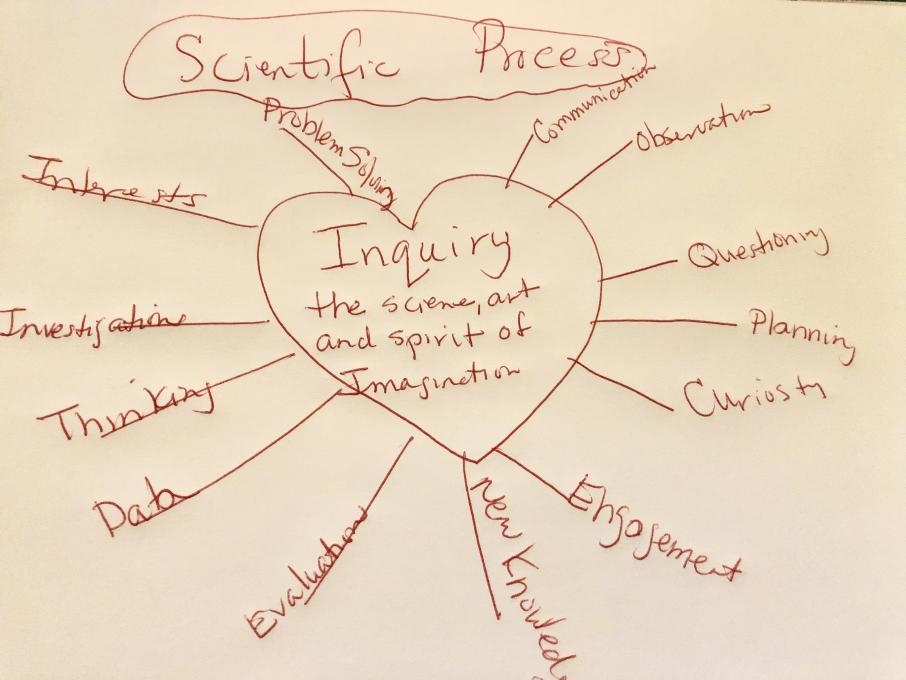
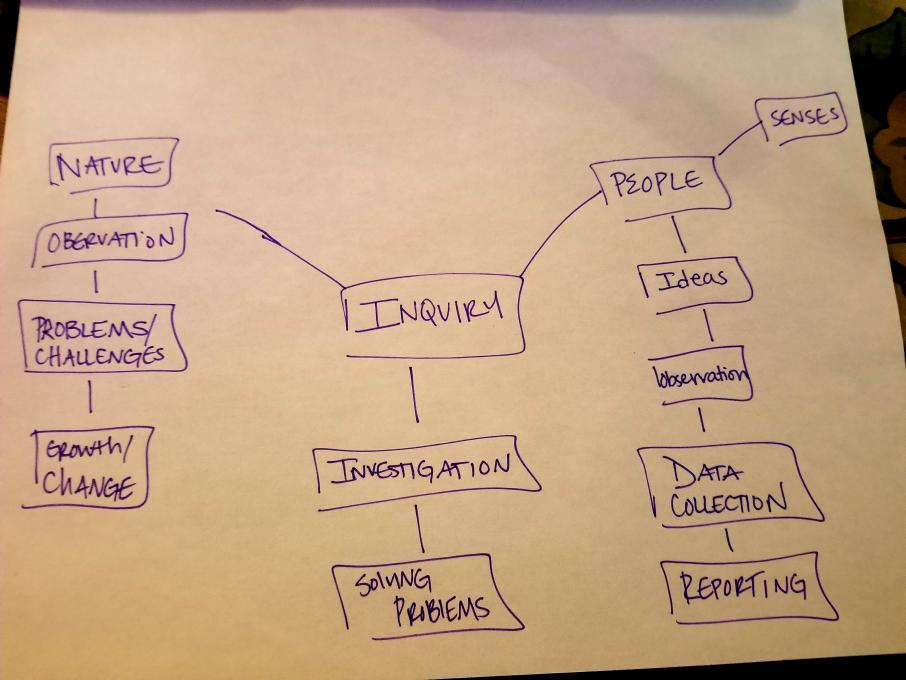
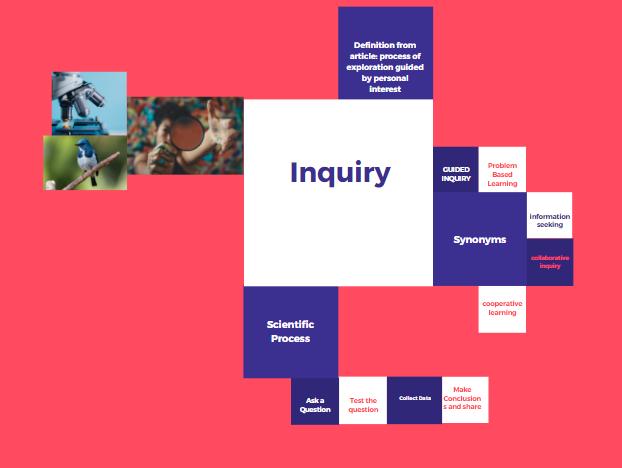
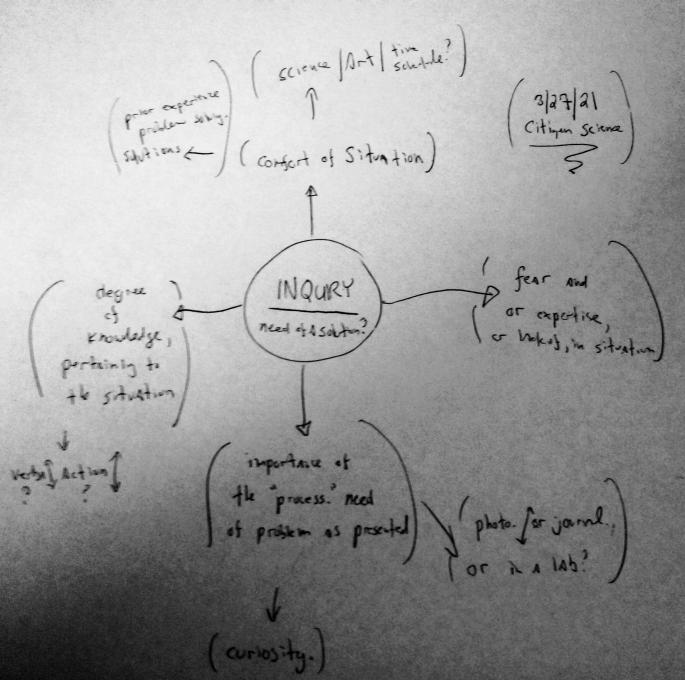 One of the simple ways I used INQUIRY, was my introduction the Red Winged Blackbird. Before the 'LAB,' courses, I never really knew about them. Then on one of my first nature walks, I saw 2. Then I thought, it must be a rare bird. Then I read that they are one of the, " most abundant birds in North America. " Then I went to a place where I can see dozens of them, every time I go there. Now I know, they are an abundant bird, but they love nature settings, only. So they are not like a 'backyard bird.' Nor a rare, California Condor, in there commonality. They are and abundant bird, but are usually in a natural environment. Not in a backyard, nor a parking lot ? Now I can photo them, and am comfortable with them, and now, through inquiry, I understand. At least in my zip code ?
One of the simple ways I used INQUIRY, was my introduction the Red Winged Blackbird. Before the 'LAB,' courses, I never really knew about them. Then on one of my first nature walks, I saw 2. Then I thought, it must be a rare bird. Then I read that they are one of the, " most abundant birds in North America. " Then I went to a place where I can see dozens of them, every time I go there. Now I know, they are an abundant bird, but they love nature settings, only. So they are not like a 'backyard bird.' Nor a rare, California Condor, in there commonality. They are and abundant bird, but are usually in a natural environment. Not in a backyard, nor a parking lot ? Now I can photo them, and am comfortable with them, and now, through inquiry, I understand. At least in my zip code ? 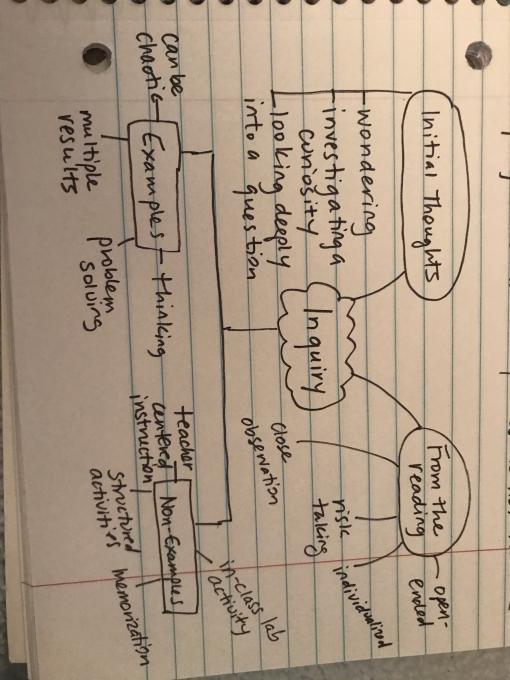
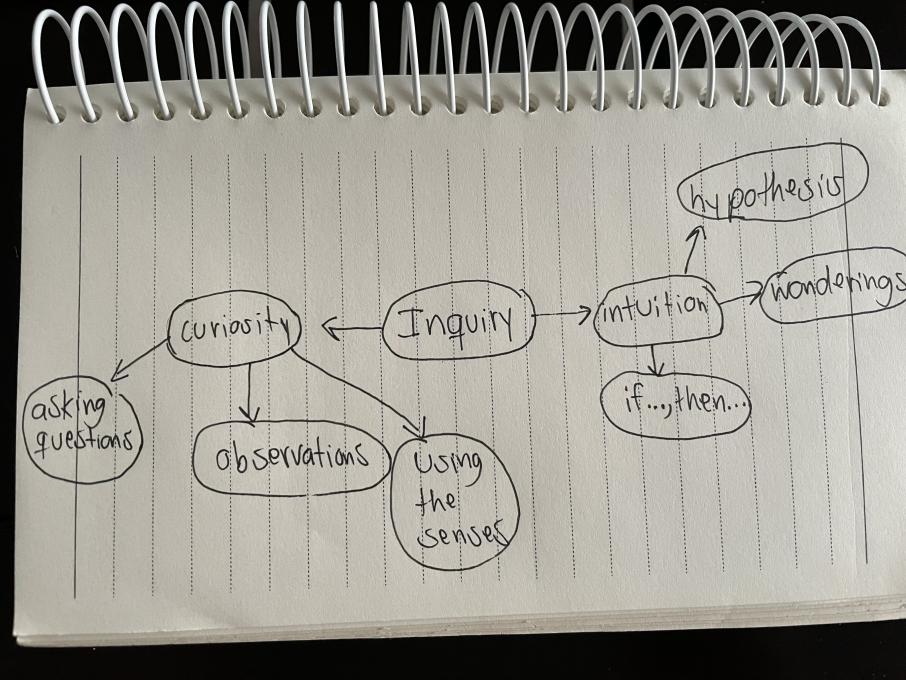
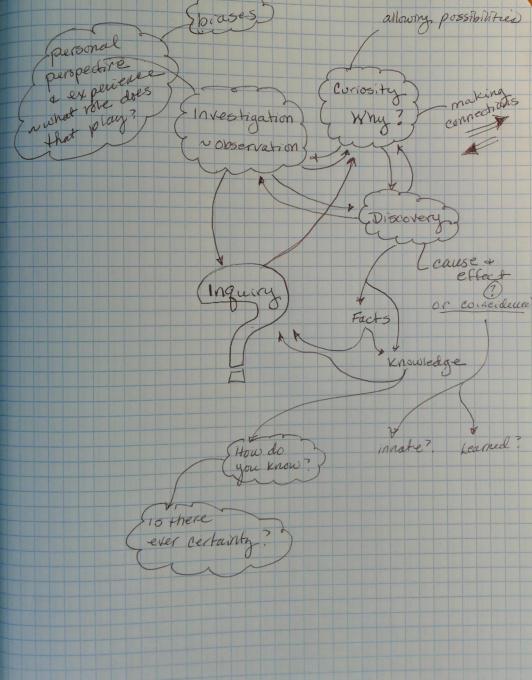
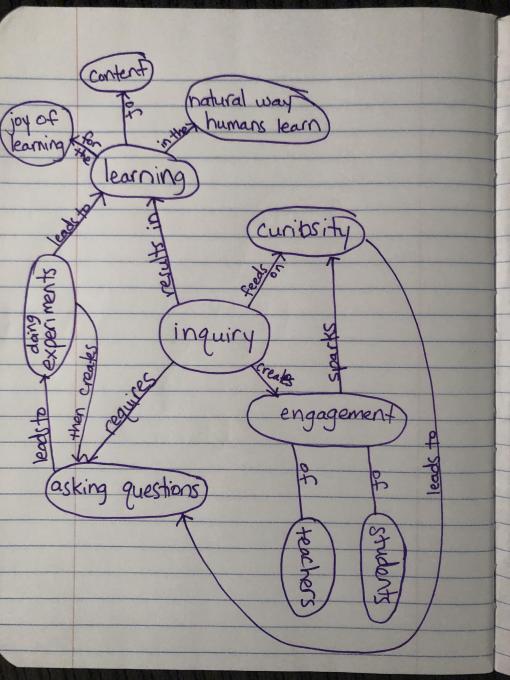
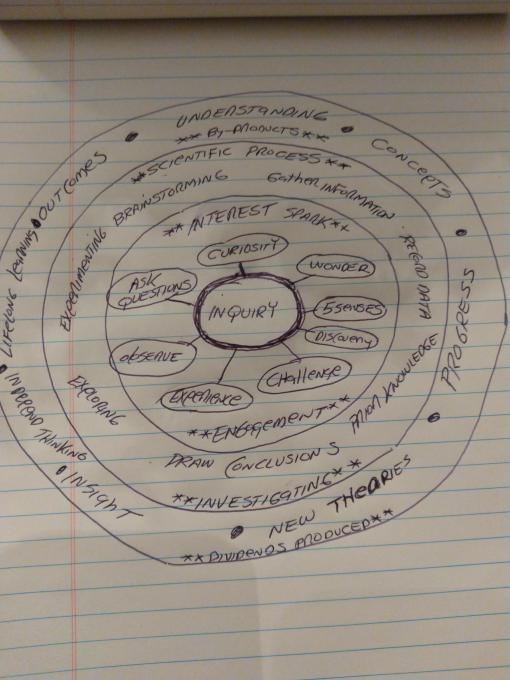
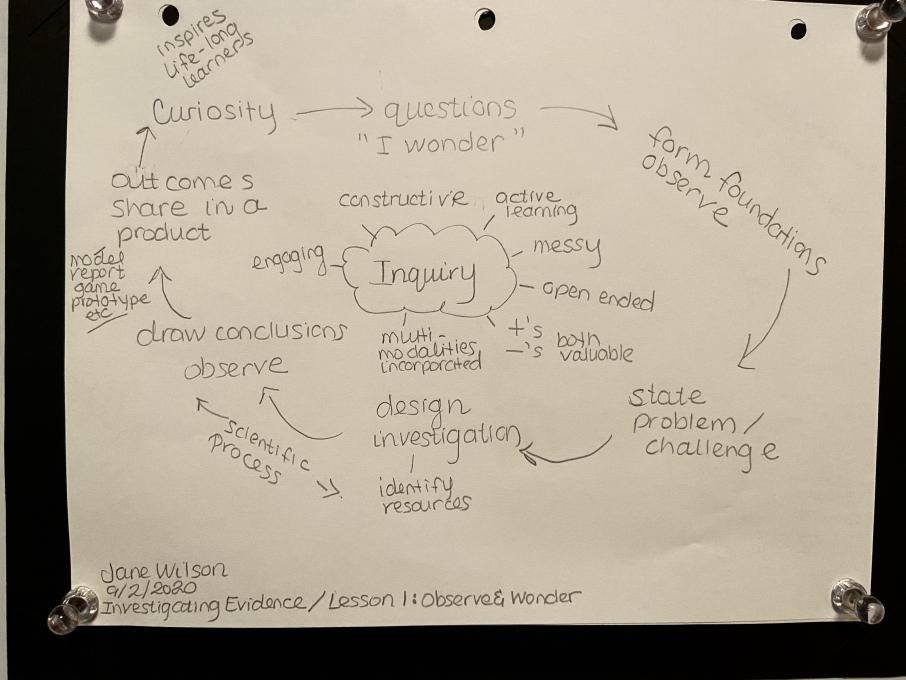
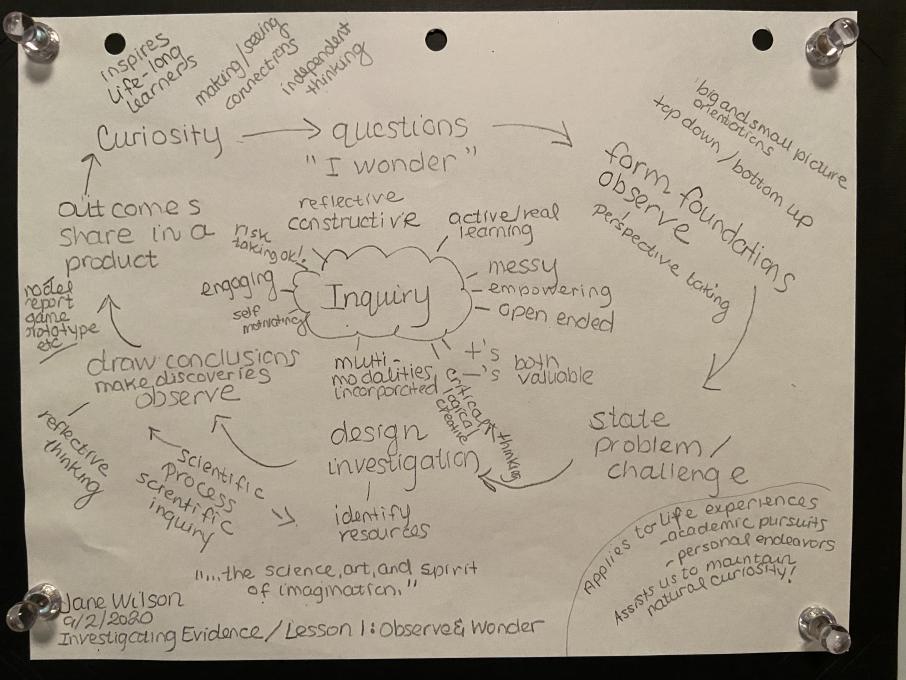
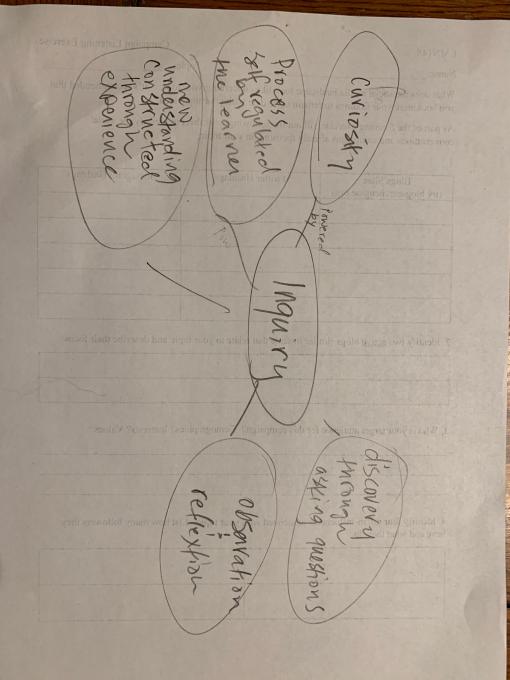
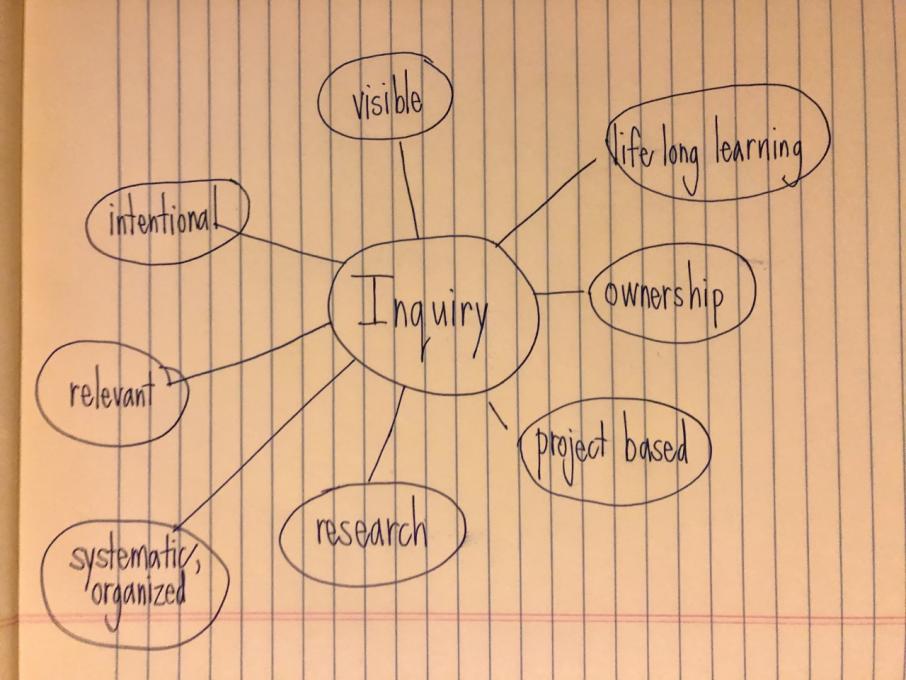
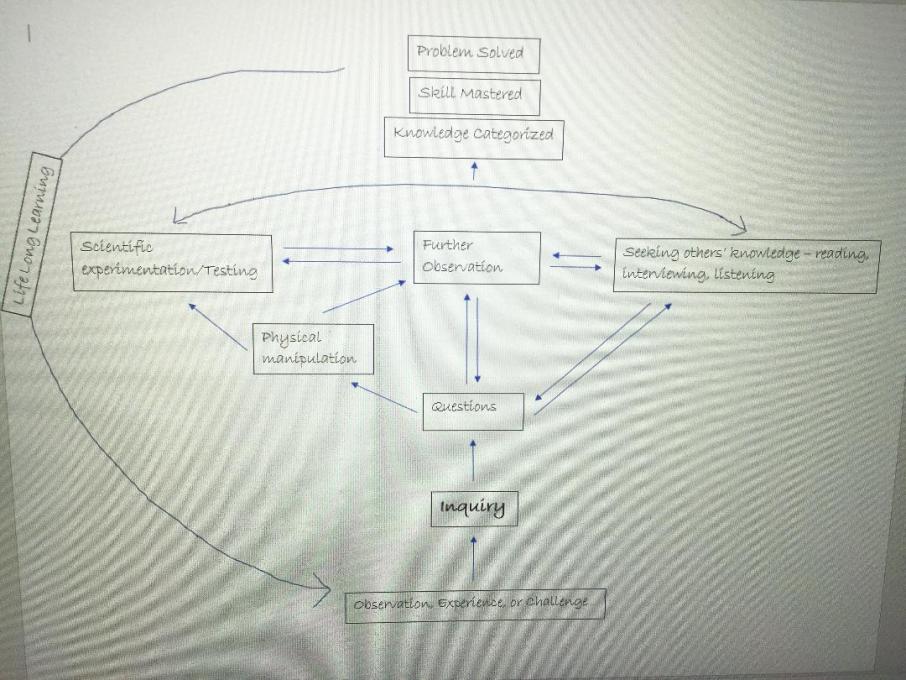
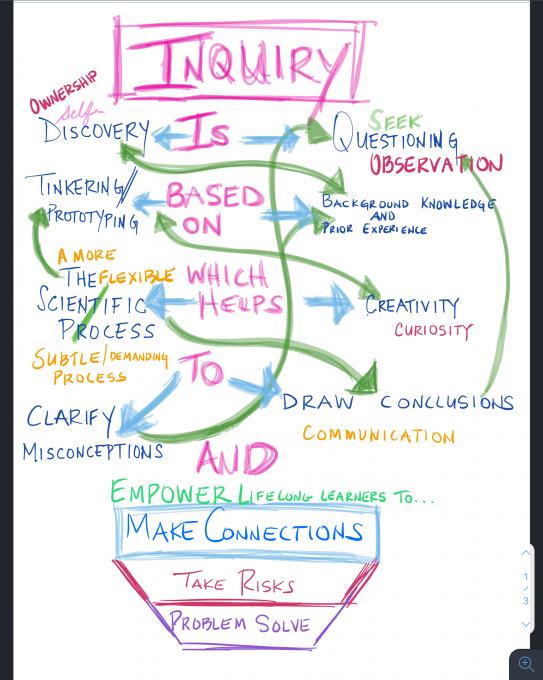
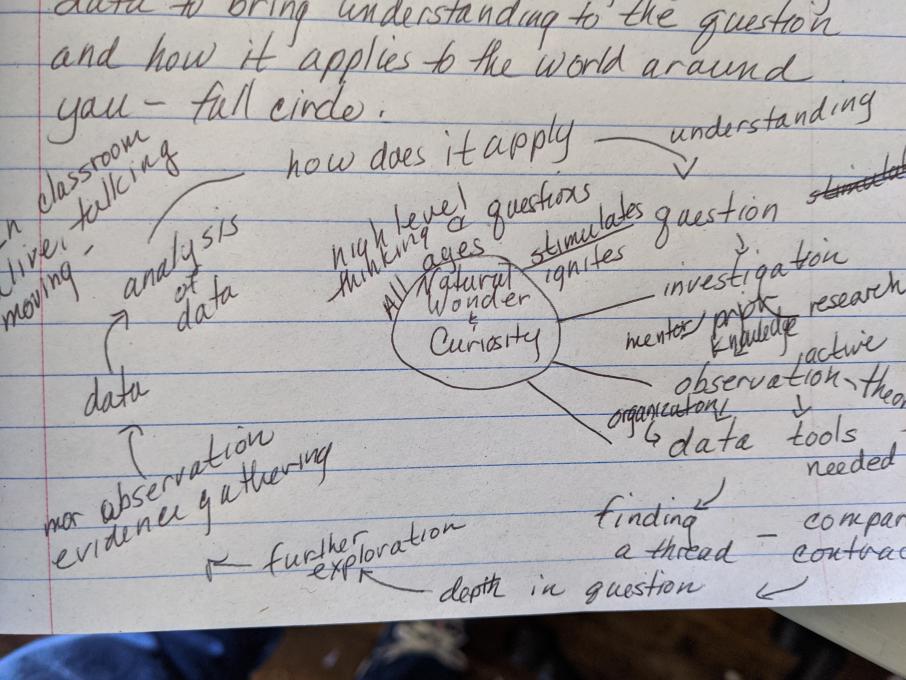
![IMG_20200714_180629626[1]](https://academy.allaboutbirds.org/wp-content/uploads/hm_bbpui/723310/To47qe22we1xmhej2aodqhq4yjl7e54hr.jpg) ual tools, discovery, community interviews and observations.
ual tools, discovery, community interviews and observations. 